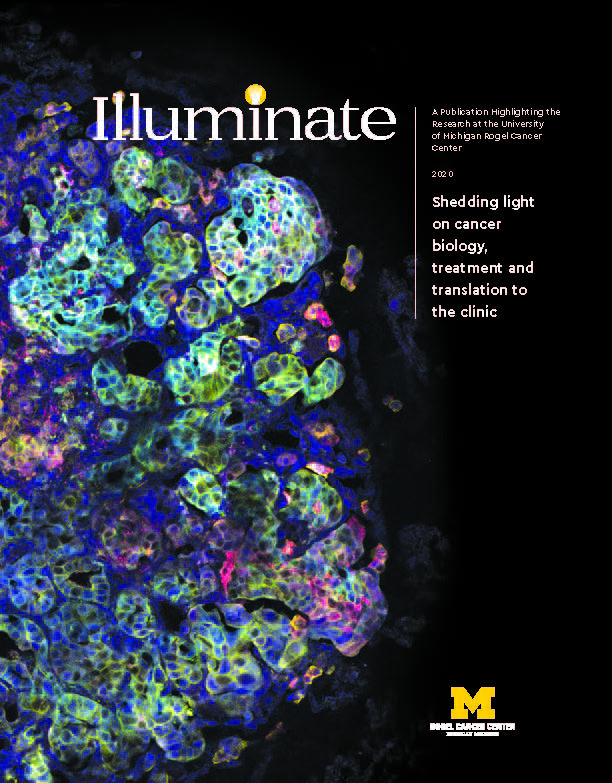Illuminate 2020

When Weiping Zou, M.D., PH.D., Charles B. De Nancrede Professor of Surgery, Immunology, Biology and Pathology at the University of Michigan, first started looking at cancer immunology, he was one of only a handful in the field who believed in the idea. Today, immunotherapy has revolutionized cancer treatment and become one of the most promising avenues in cancer research.
When Kelly Sexton, Ph.D., Associate Vice President for Research, Technology Transfer and Innovation Partnerships, meets with investors and executives, they’re surprised to learn that the University of Michigan has the largest annual research volume of any public university in the country -- over $1.6 billion -- and that Michigan is No. 2 in the country for research funding from the National Institutes of Health. This very solid foundation allows cancer research to flourish -- with nearly 50 anti-cancer drug-development projects currently underway.
Physicians and researchers, including those at the University of Michigan Rogel Cancer Center, are tapping into the wealth of previously inaccessible information in patients’ individual cancers and bringing that data together to help improve care for millions. The umbrella term from this work has come to be known as big data.
As genetic testing of tumor tissue becomes more common among patients recently diagnosed with cancer and moves closer to standard of care for identifying certain types of alterations, these genetic data are being systematically collected and analyzed by researchers.
Every day, University of Michigan Rogel Cancer Center researchers are developing new ways to treat cancer. Genetic testing to identify those at risk. Next-generation imaging to see it. Precision therapies to target it. They’re also working on new ways to talk about it.
Improvement and advancements in molecular imaging, biopsy alternatives and implantable devices are underway at the U-M Rogel Cancer Center. The goal is improving detection, diagnosis and treatment of cancers.
At the U-M Rogel Cancer Center, researchers believe that stronger lines of communication between cancer disciplines are one important way to expedite the translation of research discoveries into the clinic.
